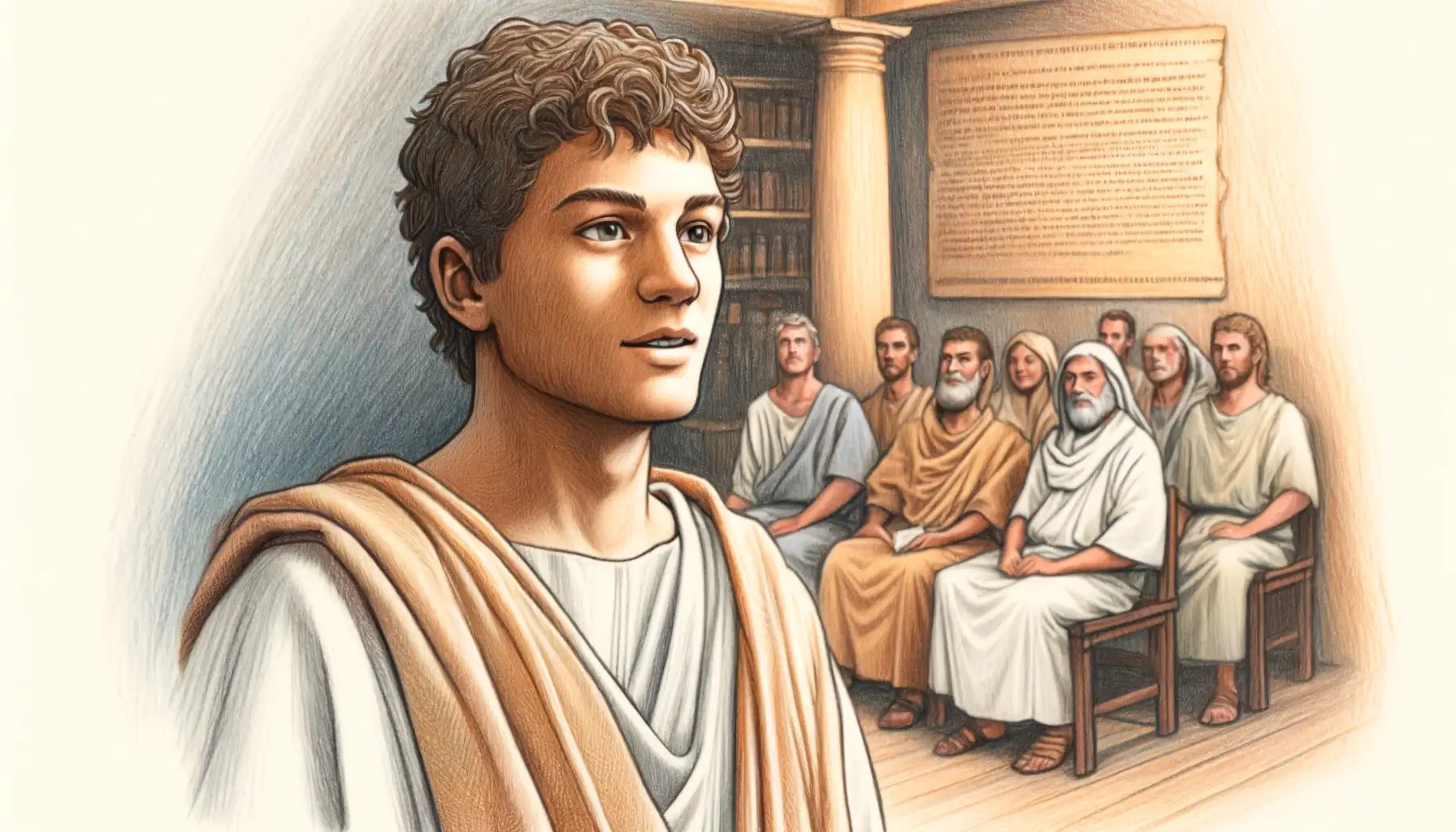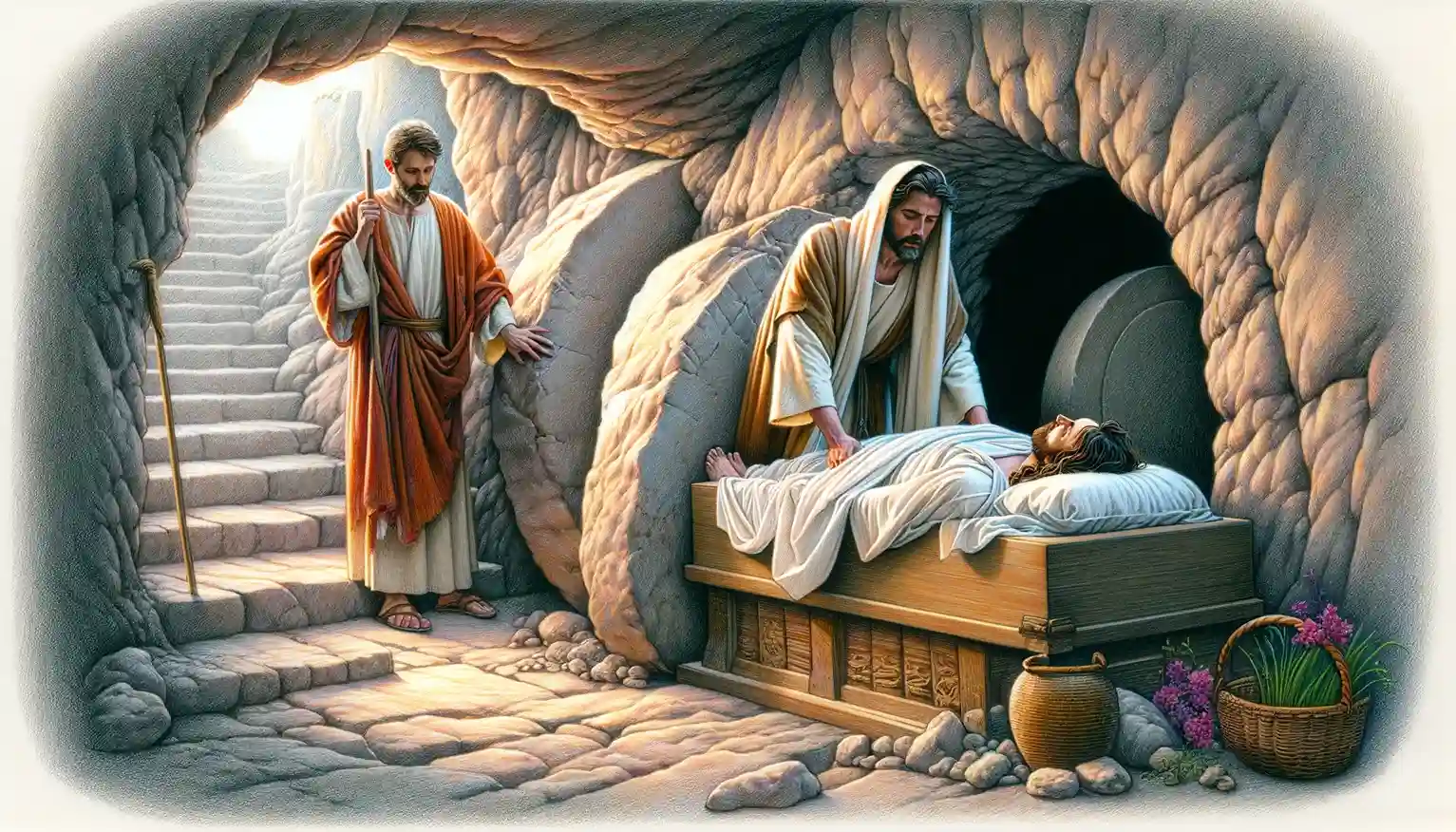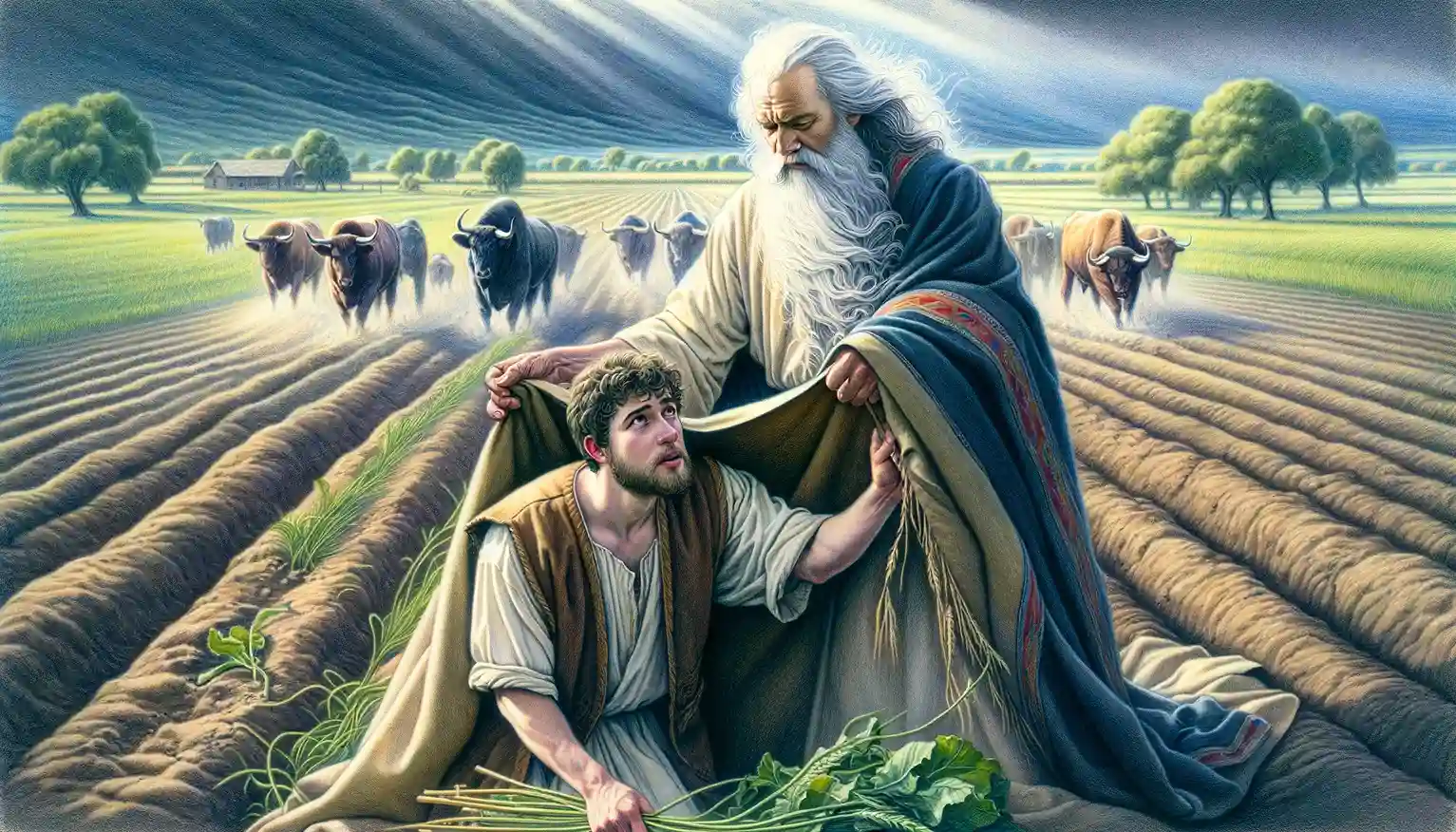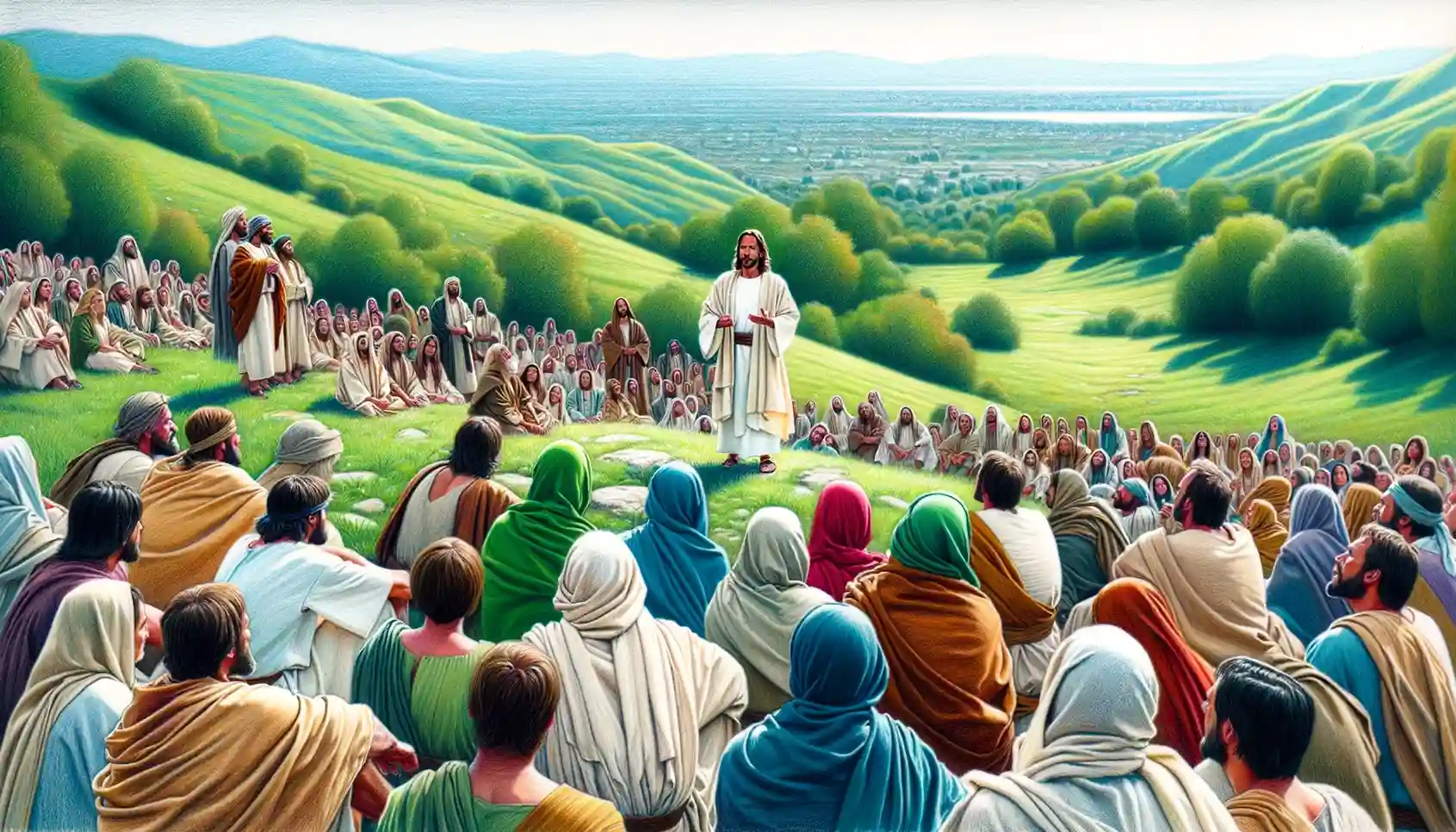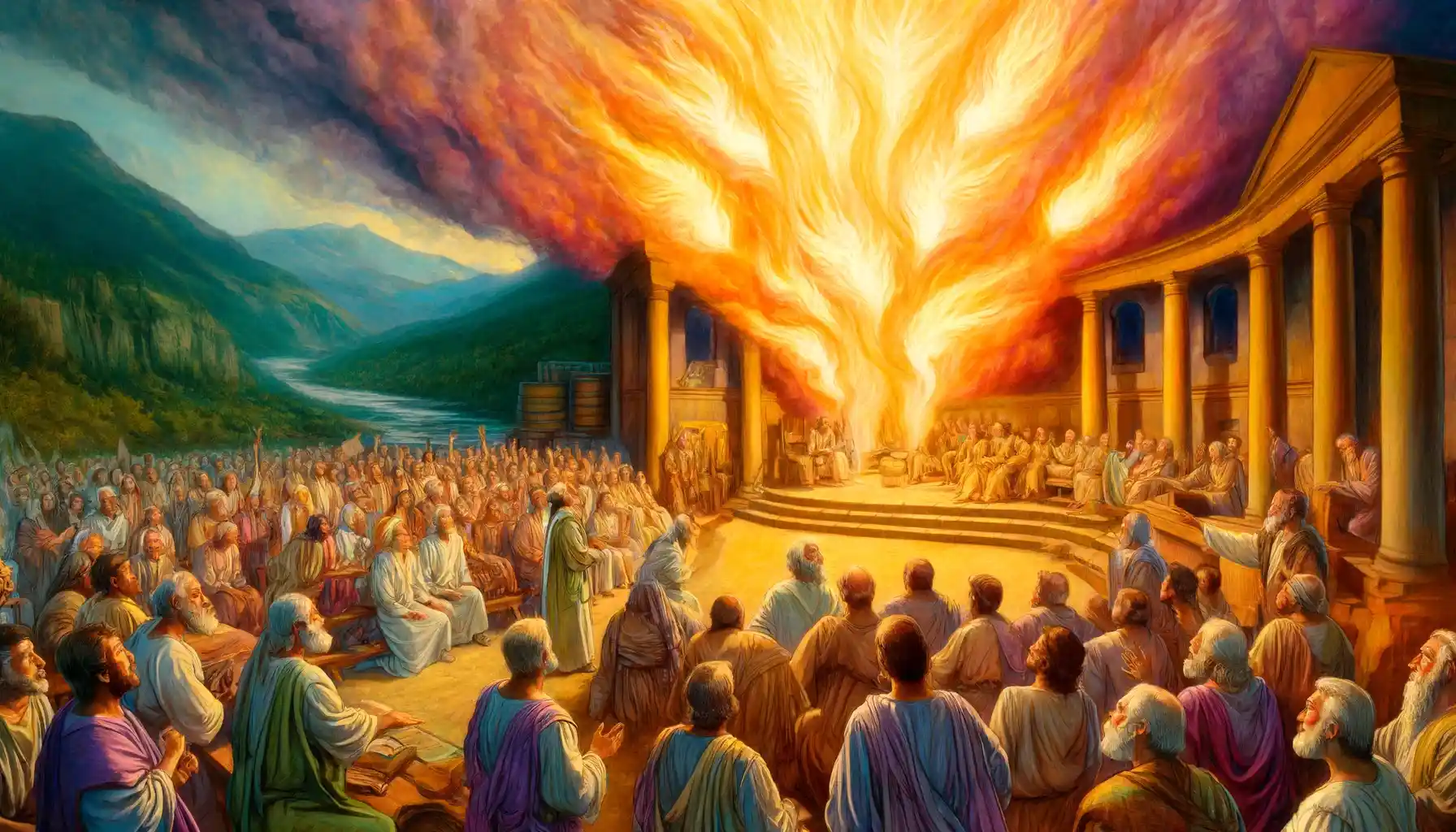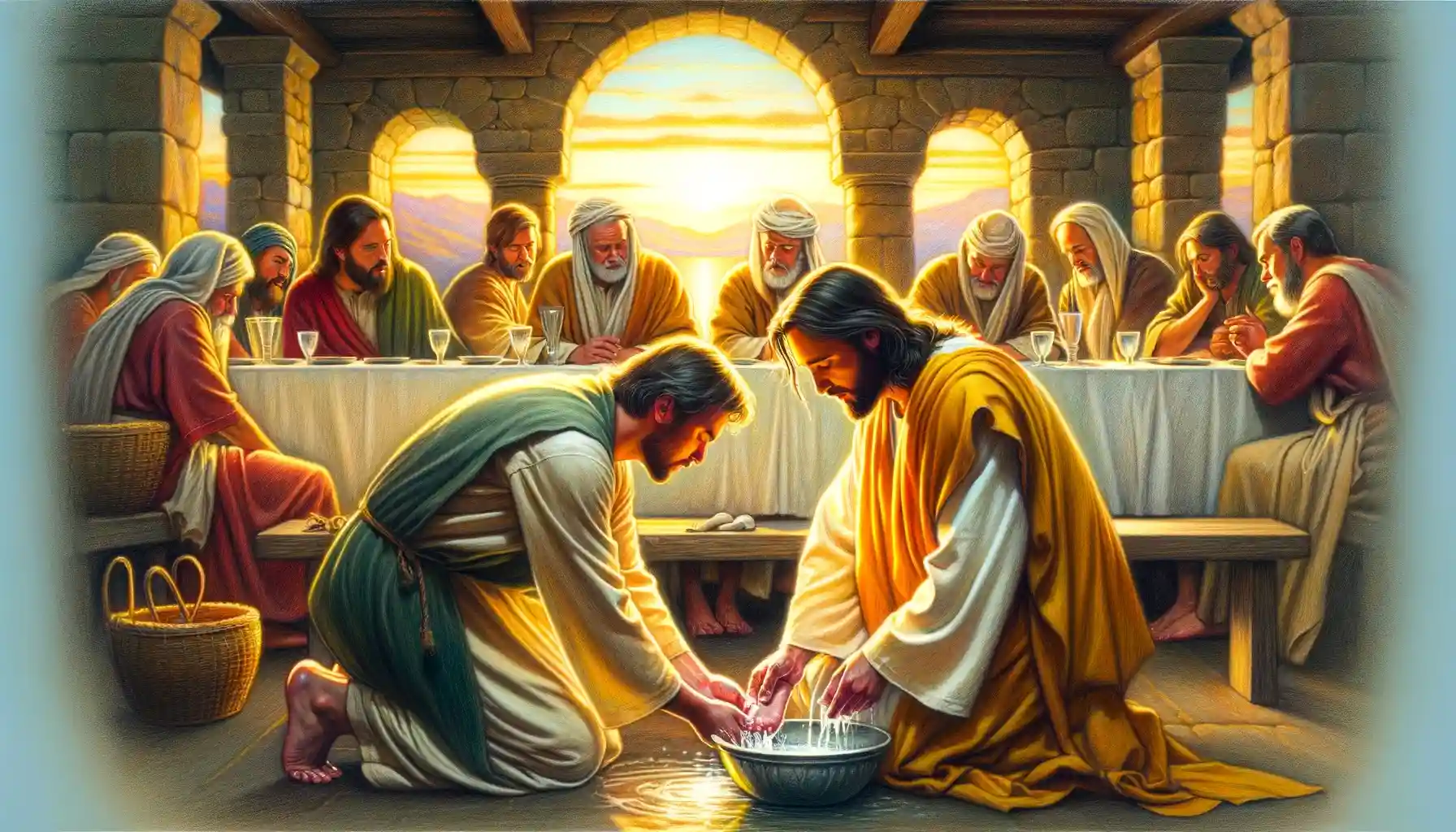Timothy, a devoted protégé of the Apostle Paul, played a crucial role in the early Christian church as a pastor and leader, known for his genuine faith, humility, and resilience, and his legacy is encapsulated in the pastoral epistles that highlight his significant contributions to the spread and establishment of Christianity.
Joseph of Arimathea, a wealthy member of the Sanhedrin and secret disciple of Jesus, courageously requested Jesus’ body from Pilate and provided his own new tomb for Jesus’ burial, fulfilling prophetic scripture.
Matthew, also known as Levi, was originally a tax collector before heeding Jesus’s call to “Follow me,” leading to his immediate departure from his previous life and his transformation into one of the Twelve Apostles, demonstrating the inclusive nature of Jesus’s ministry. Traditionally credited as the author of the first Gospel, Matthew’s writings are characterized by their structured thematic approach and emphasis on Jesus as the fulfillment of Old Testament prophecies, aimed at a Jewish Christian audience. His Gospel, which includes detailed teachings such as the Sermon on the Mount, highlights themes like righteousness, the kingdom of heaven, and the universality of Jesus’s message, resonating with both Jews and Gentiles. Venerated as a saint, Matthew’s legacy extends to being the patron of accountants, bankers, and tax collectors, with his life story embodying profound themes of conversion, discipleship, and the transformative power of divine grace.
Bartholomew, also known as Nathanael in the Gospel of John, is a biblical figure whose journey from skepticism to profound faith exemplifies the transformation experienced by those who encounter Jesus; recognized by Jesus as “an Israelite indeed, in whom there is no deceit,” Nathanael’s straightforwardness and integrity mark him as a disciple who is both honest in his doubts and sincere in his conversion. Following Jesus’ resurrection and ascension, he embarked on missionary journeys to diverse regions including India, Armenia, Ethiopia, and Southern Arabia, facing significant challenges but also contributing to the Christian tradition in these areas; his martyrdom, characterized by being flayed alive and then crucified, underscores his commitment to his faith and his willingness to endure immense suffering for his belief in the Gospel, with his legacy continuing in his veneration as a saint, celebrated on August 24th in the Western Church and June 11th in the Eastern Church, and revered as the patron saint of various professions and causes.
In 1 Kings 19:19-21, Elijah, following divine instructions, calls Elisha to succeed him by placing his mantle on him while he is plowing in the fields, a gesture that Elisha responds to by sacrificing his oxen and burning his plowing equipment, symbolizing his total commitment to the prophetic mission and marking a pivotal transition in the continuity of prophetic leadership in Israel.
The Sermon on the Mount, as presented in Matthew chapters 5 through 7, encapsulates the essence of Christian ethics and the teachings of Jesus Christ, offering a profound and comprehensive guide that challenges believers to achieve a higher standard of moral and spiritual integrity.
The Book of Acts is vital for understanding the development of the early Christian church and its teachings, serving as both a historical document and a theological treatise.
The Gospel of John remains a foundational text for Christian theology, offering a rich and deeply spiritual perspective on Jesus Christ’s identity and His teachings.
The Gospel of Luke is notable for its narrative richness, theological depth, and emphasis on the compassionate and universal nature of Jesus’ ministry.
The Gospel of Mark remains a foundational text for understanding the life and teachings of Jesus, offering insights into his profound impact and the essence of his message.

